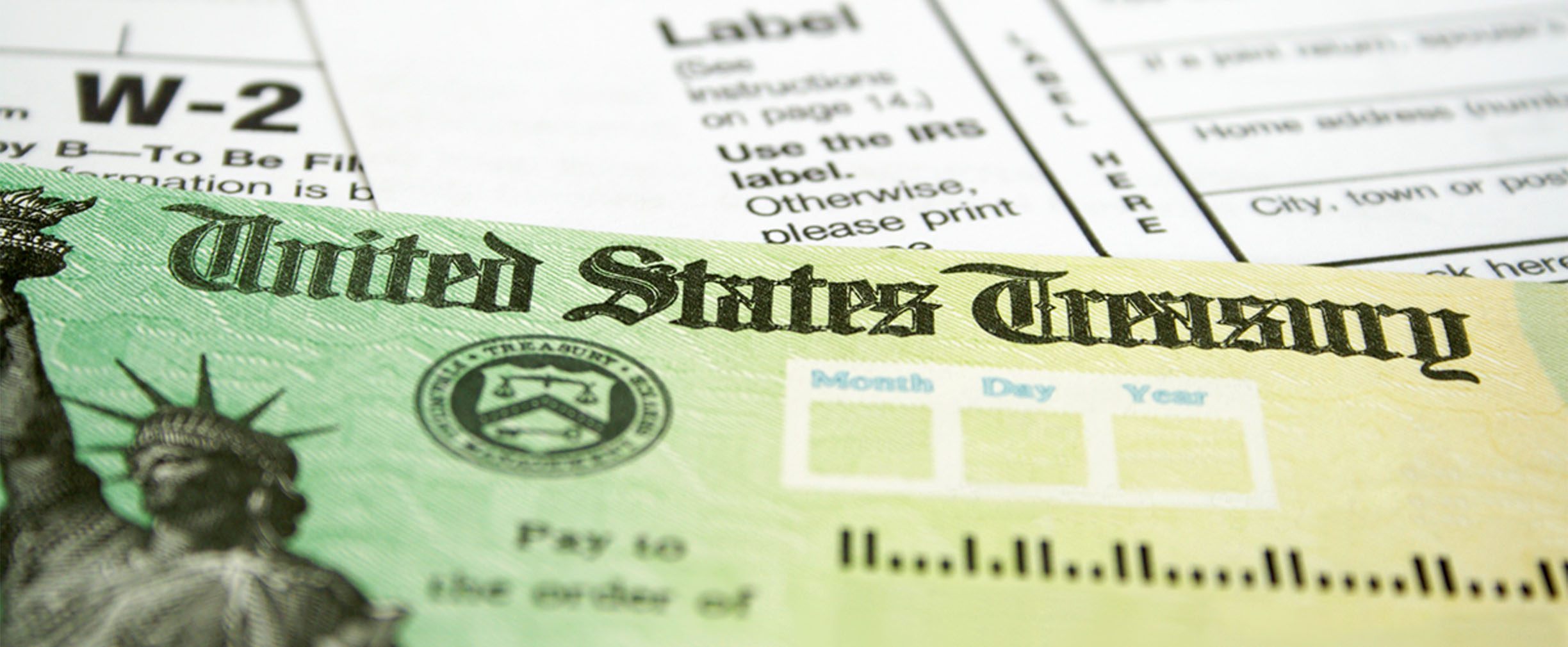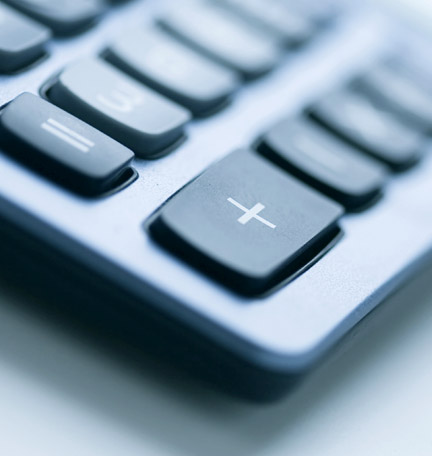7 smart ways to use your tax refund or bonus
Don’t let the money burn a hole in your pocket. Buy yourself peace of mind instead.
TABLE OF CONTENTS:
- Eliminate debt
- Create an emergency fund
- Start a savings account
- Save for retirement
- Make home improvements
- Open a secured credit card
- Donate to charity
ADDED BONUS: Why refunds are not a good thing
According to the Internal Revenue Service, the average federal tax refund in 2024 was $3,167. That kind of windfall has a magic ring to it.
But before booking those airline tickets for a dream vacation or spinning off to the dealership, hitting the pause button might be in order. After all, vacations always come to an end. And that new car smell vanishes long, long before the payments.
Instead, why not let that refund give you greater financial strength and the opportunity to build wealth?
If a big refund (or, for that matter, any other big payday such as a bonus from work) is on your horizon, here’s some time-tested advice. A little discipline here, some savvy moves there, and you could be on the road to greater financial confidence and wellbeing in no time at all.
Ready to make the most of your refund? Here are seven foolproof ways to put that refund to work.
1. Eliminate debt
The less you owe, the more financial freedom you enjoy. It’s really that simple.
After all, it does no good to receive a tax refund, only to shell out an even larger amount each year in interest payments.
Instead, the more debt you wipe out, the more money you’ll have left over each month. That extra cash means greater breathing room, not to mention the opportunity to build up your savings and potential investments.
If you don’t know where to begin, consider these recommendations on strategies for retiring debt, along with a calculator to help you weigh different strategies for paying it off
Stick with a program month after month, and you’ll be surprised how quickly household debt can melt away. That tax refund of yours could make for an excellent starting point.
Related Content: How to pay off debt: 6 steps to success
2. Create an emergency fund
A failed transmission or leaky roof can wreck finances—and those mishaps have a way of taking place at the worst possible times.
That’s why, after you eliminate debt, creating a robust emergency fund should be a priority. Your tax refund could be ideal seed money to get that effort rolling.
How much money should you set aside? Opinions vary, but most financial pros recommend having at least three to six months of household expenses. That should be enough to insulate you from most setbacks. Even better, it keeps you from sliding back into debt if you need to pay an unexpected expense.
The key? Keep your emergency fund separate from your checking account, but still accessible. Usually, the best vehicles for accomplishing this are savings or money market accounts. In those accounts, your money not only earns interest but can be easily accessed at a moment’s notice.
It takes time and patience to build an emergency fund, sometimes years. But the sooner you begin, the sooner you’re equipped to handle many of the financial setbacks life may throw your way.
3. Start a savings account
That aforementioned vacation or a new car is a worthy goal. However, it’s best to save ahead for those purchases. Savings accounts earmarked for specific aims are one great way to do it.
Whether your big purchase is a new car, a new kitchen, or Paris in June, a designated savings account will help you move steadily towards that goal month after month.
Not all savings accounts are created equal. To ensure you make the most of your money, compare offers carefully.
Another hint? Make saving as low-effort as possible. Your employer can likely automatically deposit a portion of your paycheck directly into a designated savings account. That convenience will spare you the extra step of moving money—and keeps you on track for your savings goal.
Have multiple needs? Consider opening multiple designated savings accounts. At the same time, ensure that you manage those multiple accounts to avoid monthly fees. Keep at it and, over time, you’ll be amazed at how close you come to meeting your financial goals.
4. Save for retirement
Especially if you’re in your twenties or thirties, retirement might seem a long way off. But the sooner you start saving, the less you’ll need to worry about it in your forties, fifties, and sixties.
With that in mind, use your tax refund to make contributions to an IRA (if eligible), a Roth IRA for your retirement, or even a 529 college savings plan for your kids. Invest early and often, allowing those funds to grow over time.
Put the money away, add to it every pay period, and check on its performance from time to time. Especially if you start in your twenties, you’ll be amazed how that modest sum of money may grow over time.
In other words, do this consistently and with discipline, and you’ll thank yourself later in life.
5. Make home improvements
For most, a home is their biggest investment. Not only is it a potential storehouse of wealth, but its value may grow over time.
However, it’s critical to pay close attention to maintaining your home’s worth. Part of that is simply upkeep on what’s already there, such as replacing the roof or repainting the exterior.
Or it could be improving areas such as the kitchen or outdoor spaces—or even making your home more energy efficient. Other times, it’s a matter of keeping the interior fresh with more current choices in décor.
At all times, however, home ownership is an ongoing effort to preserve and improve value. A tax refund could give those efforts a decided boost. Whether your refund can pay for improvements outright or help with your financing efforts, the dollars you invest in your home may be worth every dime.
Related Content: Home Improvement Finance Options
6. Open a secured credit card
A credit card is a powerful financial tool, not to mention the convenience of use in today’s tech-enabled world. While it’s certainly important to avoid debt whenever possible, there are times when a credit card can be indispensable.
However, there are those who find it tough to secure a credit card, either due to past credit issues or a limited credit history.
If securing a credit card is a struggle for you, then your tax refund might be a good first step to a secured card. With its responsible use, you can build that all-important credit score.
A secured credit card works by requiring you to make a refundable security deposit upfront. This deposit acts as collateral against the card’s credit limit, allowing you to make purchases just the way you would with a regular credit card.
By using your tax refund to obtain a secured credit card, you have an avenue toward building or repairing credit. Over time, responsible use of the secured credit card may yield better credit scores. And when it comes time to close your secured credit card. And if you eventually close your secured credit card account in favor of a card with more features, your collateral is refunded to you.
Want to know more? Ask a Regions banker to learn if our secured credit card is the right move for you.
7. Support a charity
Sometimes it’s not all about dollars and cents. Sometimes it’s about helping others and contributing to your community.
If a cause is important to you, chances are there’s an organization that could use your gifts. Whether it’s helping the homeless, supporting the arts, or providing essential services for those in need, your generosity can make a substantial difference for the better. As a bonus, if you are able to itemize deductions, your donation this year could have a positive outcome on next year’s tax return.
However, it’s crucial to ensure your money is used wisely. When choosing a recipient for your donation, make sure there’s an established track record of both service to the community and responsible stewardship of funds. One handy resource to consult is Charity Navigator, a website that rates organizations based on their history of accountability and effectiveness.
But watch out for fraudsters who like to exploit the generosity of others. One example: fake charities set up after disasters. Learn more about how to detect fraudulent charities and make sure your gifts get used in the way you intended.
While using your tax refund for a charitable donation may not boost your bank balance, it will definitely have a positive effect on those who need help.
Why refunds are not a good thing
Your tax refund isn’t a gift from the government. It’s how much you overpaid last year.
Instead of allowing the government to keep your cash all year long, shouldn’t it be in your own bank account where it belongs? If so, now is the time to check the withholdings on your paystub, adjusting to avoid future overpayment of taxes . At the same time, if there are questions regarding withholdings for your taxes, it often proves wise to consult a tax professional for more detailed advice.
When it comes to tax refunds, bonuses and other windfalls, financial tips are great but there’s no substitute for person-to-person advice. If you’re ready to map out a financial plan for life, one that takes into account your personal goals and objectives, maybe it’s time to schedule a Regions Greenprint® plan appointment with your Regions banker.
Not only will you get personalized advice for reaching your financial goals, but a plan of action, too. The sooner you make the leap, the sooner you can get started on your goals.






